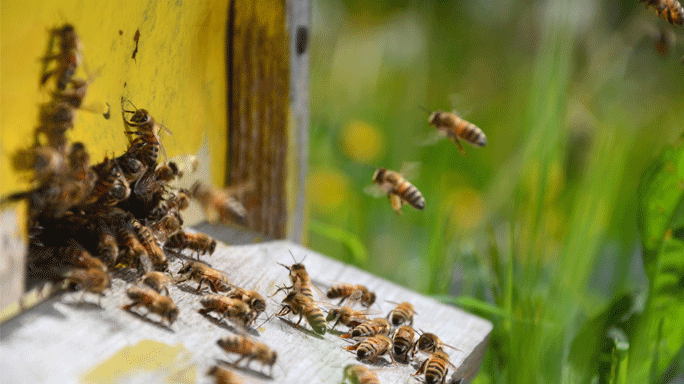Host a Hive Initiative Launched

To mark World Bee Day, 20th May 2019, Minister of State for the Department of Agriculture, Food and the Marine (DAFM), Andrew Doyle, announced the Department’s “Host a Hive” initiative.
The scheme aims to get landowners who have created new native woodlands to “Host a Hive” in their woodland.
Hosting a Hive would be mutually beneficial to both the landowner and the beekeeper. The native woodlands will provide great foraging space for the bees and the bees will in turn provide a great new source of pollination for the woodlands.
This would increase the growth of new trees and plants, stimulating the growth of new plant communities. Hosting a Hive would fall in line with the objectives of the Native Woodlands Scheme (NWS) by promoting biodiversity in the woodland and the surrounding areas. It is hoped that the uptake of this fantastic initiative will encourage further recovery of the honeybee population in Ireland.
The Minister also confirmed the arrival of honey bees to Agriculture House with hives installed on Agriculture House’s city centre Headquarters on Kildare Street. This joins DAFM’s Backweston campus as the latest DAFM location to install hives.
Participants of the woodland scheme can contact the Federation of Irish Beekeepers’ Associations (FIBKA) and the Irish Beekeepers’ Association clg (IBA clg).
These organisations have a national network of beekeepers looking to find suitable locations for their hives where there would be productive foraging areas for the bees.
“Host a Hive” is also backed by the Native Irish Honeybee Society (NIHBS). Their role is to assist the re-introduction of the Native Irish Honeybee throughout the country, a goal which could be greatly assisted by this initiative.
For farmers not involved with the woodland scheme, there are still many ways they can aid the recovery of the honeybee. The All-Ireland Pollinator Plan 2015-2020 provides a few simple steps to make the farm more pollinator friendly:
- Maintain native flowering hedgerows
- Allow the growth of wildflowers around the farm
- Particularly dandelions, which are a vital nutrition source for bees
- Provide nesting places for wild bees
- Minimise the use of artificial fertilisers
- Reduce the use of pesticides
- Reduce the frequency of lawn mowing around the home (around once every six weeks)
- Plant pollinator friendly trees and flowers
- Crocus, Allium, Snowdrops – Better food for bees than Daffodils
- Willow, Hawthorne and Blackthorne
- Create a couple of small south-facing earth banks to provide shelter for nesting
Experts have highlighted the honeybee is the most important managed pollinator species. From an agricultural perspective, they, along with other pollinating insects, have a key role in the maintenance of field crop production and are vital for agriculture sustainability, protecting biodiversity and landscape and regulating the natural environment.
First Published 28 May 2019
